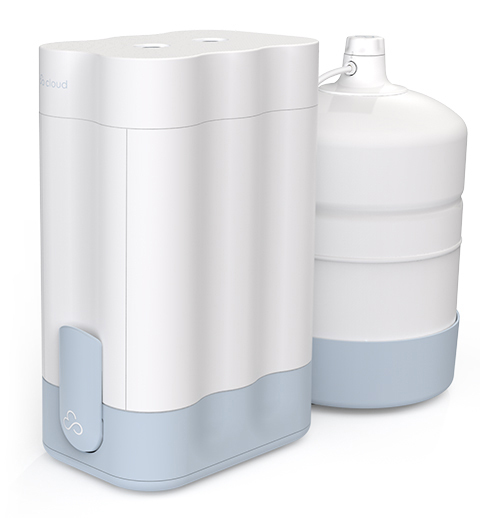What Is Dehydration & Being Dehydrated?
Being dehydrated is due to one very specific thing.
Roughly 60% of the body is made up of, you guessed it… water!
In other words, it hydrates your cells and keeps them in tip-top shape.
Dehydration happens when the body uses more fluid than it takes in.
Your body without water is like a car without fuel – it simply can’t do what it was meant to do!
8 Signs You're Dehydrated
Has dehydration been dragging you down?
Here are the most common signs:
Not drinking enough fluids can have a negative impact on the heart.
Dehydration can cause cardiac symptoms, like heart palpitations, pounding, fluttering and irregular heartbeat.
According to one study, dehydration can damage blood vessels and alter blood pressure.
Dehydration can also stress the heart during strenuous exercise in hot weather, so make sure to drink plenty of water and take it easy on your precious heart.
You’ve probably heard about the dangers of high blood pressure, but did you know that low blood pressure can be bad too?
Low blood volume from dehydration can cause a dangerous drop in blood pressure.
As a result, there isn’t enough of the good stuff, like oxygen, circulating in your capillaries, veins, arteries and heart.
Studies show that this can be life-threatening, resulting in shock and even death.
If you haven’t had enough fluids, you might feel more sluggish than usual.
Because dehydration affects everything, especially your sleep.
One study found that people who were properly hydrated slept longer than those who weren’t.
Another study found that dehydrated athletes reported greater fatigue and decreased endurance.
It might sound kind of gross, but checking the color of your pee is an easy way to find out if you’re dehydrated.
If you’re dehydrated, your urine will be a darker color and you’ll “go” less often.
This is your body’s way of conserving water.
It doesn't have to be clear – but a pale yellow is a good sign that you’re getting enough fluids.
5. Cracked Lips & Dry Skin
The two most common signs of dehydration?
Decreased skin elasticity and dry skin and lips.
However, if you’re already drinking a lot of water, it could be a sign that something else is wrong, so get to the doctor for a check-up.
Feel like your head’s in a vice? You could be dehydrated.
Why does dehydration cause headaches?
One theory is that dehydration causes the brain’s blood vessels to stretch, resulting in a throbbing head pain.
Luckily, studies show that drinking more water can help reduce migraines.
Feeling dizzy and light-headed, especially after standing or sitting up quickly, is another sign you’re not getting enough fluids.
The medical term is called orthostatic hypotension, and it happens due to a sudden drop in blood pressure when you stand up.
This is especially common in older folks, who are more prone to dehydration and low blood volume.
One Mississippi, two Mississippi, three... oh, look, a puppy!
Studies show that dehydration can strain your brain and make you easily distracted.
Negative Long-term Health Effects of Dehydration
What happens when you ignore dehydration for too long?
Serious side effects can include:
- Seizures
- Brain swelling
- Kidney failure
- Shock
- Coma
- Death
So, how can you reverse it?
If it’s mild to moderate dehydration, you can combat it by drinking more fluids, but if it’s severe, you’ll need to see a doctor asap and get some IV fluids.
So do yourself a favor and avoid it in the first place by drinking plenty of water.
So drinking water isn’t your cup of tea, huh?
Luckily, we have some tricks up our sleeve:
- Add flavor with infused fresh fruit, vegetables (cucumber, lemon) and herbs (ginger)
- Make hydration a habit by downloading a water-drinking app
- Cut the sugar by diluting your juice with water
- Swap your soda pop for a fizzy water
- Eat fruits and veggies that contain plenty water and electrolytes (like cucumber, celery and papaya)
You can also install an under-sink RO water system, which guarantees toxin-free water full of essential minerals.
Click here to learn more.

